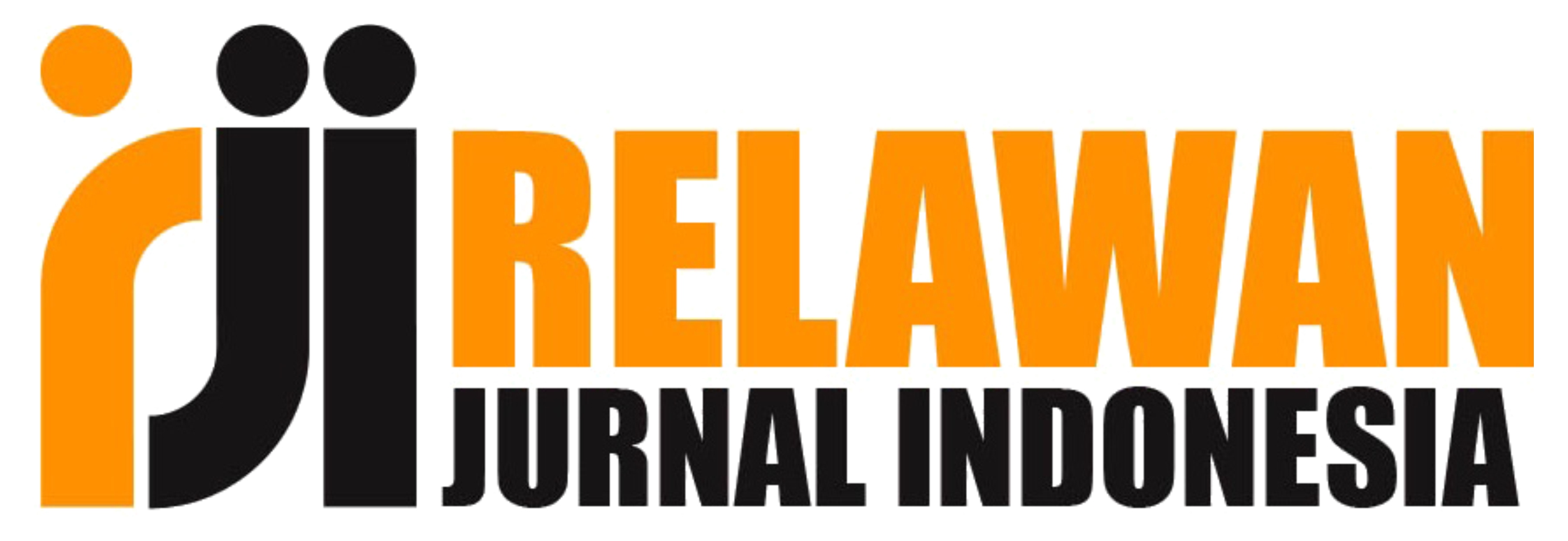Ruang Publik Pengarusutamaan Gender Dalam Kebijakan Adaptasi Perubahan Iklim Di Indonesia
DOI:
https://doi.org/10.61476/72ttv330Keywords:
Public Space, Gender Mainstreaming, Policy, Climate ChangeAbstract
The global water crisis, disaster-conflict linkages, and the impact of various crises on women's mental health and well-being require a gender-mainstreaming policy approach to climate change. The implementation of a gender mainstreaming approach requires a public space for women, as a space for autonomy to voice issues and produce policies that are in line with women's interests. This article examines how public space can be present in discussions on gender mainstreaming in climate change. This article aims to elaborate on the public sphere that will interpret gender mainstreaming of climate change. The method in this article uses library research, which collects data by understanding and studying theories from various literatures. The research results in the public sphere combining discursive democracy and complex problem-solving rationality, which is not centralized planning but an open society to realize policies. The discourse of gender mainstreaming can be utilized by women's groups whose knowledge capacity is improving through public space to discuss their interests related to climate change. The public space in Indonesia uses the development planning deliberation (musrenbang) from the local to the national level.
References
Acosta, M., Van Bommel, S., Van Wessel, M., Ampaire, E. L., Jassogne, L., & Feindt, P. H. (2019). Discursive Translations of Gender Mainstreaming Norms: The case of Agricultural and Climate Change Policies in Uganda. Women’s Studies International Forum, 74, 9–19. doi:10.1016/j.wsif.2019.02.010
Alston, Margaret. (2014). Gender Mainstreaming and Climate Change. Women's Studies International Forum Volume 47 (2014)DOI: 10.1016/j.wsif.2013.01.016.
Allwood, Gill. (2013). Gender Mainstreaming and Policy Coherence for Development: Unintended Gender Consequences and EU Policy. Women's Studies International Forum 39 (2013) 42–52, journal homepage:www.elsevier. com /locate/ wsif
Allwood, Gill. (2020) Mainstreaming Gender and Climate Change to Achieve a Just Transition to a Climate‐Neutral Europe. JCMS: Journal of Common Market Studies, 58(S1), 173–186. Portico. https://doi.org/10.1111/jcms.13082.
Ampaire, Edidah L., Mariola Acosta, Sofia Huyer, Ritah Kigonya, Perez Muchunguzi, Rebecca Muna, Laurence Jassogne. (2020). Gender in Climate Change, Agriculture, and Natural Resource Policies: Insights from East Africa. Climatic Change (2020) 158:43–60 https://doi.org/10.1007/s10584-019-02447-0.
Arandia, Irene Iniesta., Federica Ravera, Stephanie Buechler, Isabel Díaz-Reviriego, María E. Fernández-Giménez, Maureen G. Reed, Mary Thompson-Hall, Hailey Wilmer, Lemlem Aregu, Philippa Cohen, Houria Djoudi, Sarah Lawless, Berta Martin-Lopez, Thomas Smucker, Grace B. Villamor, Elizabeth Edna Wangui. (2016). A Synthesis of Convergent Reflections, Tensions and Silences in Linking Gender and Global Environmental Change Research. Ambio, Vol. 45, Supplement 3: Gender Perspectives in Resilience, Vulnerability and Adaptation to Global Environmental Change (2016), pp. S383-S393, Springer on behalf of Royal Swedish Academy of Sciences.
Beall, Jo. (1998). Trickle-Down or Rising Tide? Lessons on Mainstreaming Gender Policy From Colombia and South Africa. Social Policy & Administration, vol 32, no 5 December 1998, pp. 513-534.
Björnberg, Karin Edvardsson., Sven Ove Hansson. (2013). Gendering Local Climate Adaptation. Local Environment: The International Journal of Justice and Sustainability, 18:2, 217-232, DOI: 10.1080/13549839.2012.729571.
Carr, Edward R., Mary C. Thompson. (2014). Gender and Climate Change Adaptation in Agrarian Settings: Current Thinking, New Directions, and Research Frontiers. Geography Compass volume 8, issue 3 (2014) DOI: 10.1111/gec3.12121.
Chanamuto, Nicola J.C., Stephen J.G. Hall. (2015). Gender Equality, Resilience to Climate Change, and The Design of Livestock Projects for Rural Livelihoods. Gender & Development, volume 23, issue 3, DOI: 10.1080/13552074.2015.1096041.
Debusscher, Petra. (2012). Mainstreaming Gender in European Union Development Policy in the European Neighborhood. Journal of Women, Politics & Policy, 33:322–344, Taylor & Francis Group, DOI: 10.1080/1554477X.2012.722427.
Fu, Xinyu., Gomaa, Mohammed., Deng, Yujun., and Peng, Zhong-Ren. (2016). Adaptation Planning for Sea Level Rise: A Study of US Coastal Cities. Journal of Environmental Planning and Management, 2016. http://dx.doi.org/10.1080/096 40 568. 2016.1151771. Routledge.
Hall, Mary Thompson., Edward R. Carr, Unai Pascual. (2016). Enhancing and Expanding Intersectional Research for Climate Change Adaptation in Agrarian Settings. Ambio, 45(Suppl. 3):S373–S382DOI 10.1007/s13280-016-0827-0.
Handayani, D. W. (2021, December). The Meaning of Masculine Subjectivity in Responding to the Impact of Climate Change. In 2nd International Indonesia Conference on Interdisciplinary Studies (IICIS 2021) (pp. 87-92). Atlantis Press.
Hermida, Paula Otero, Ramón Bouzas Lorenzo. (2019). Gender Mainstreaming in Spain: Policy Instruments, Influencing Factors, and The Role of Local Government. Local Government Studies. DOI: 10.1080/03003930.2019.1682556, pp. 1-24.
Hiwasaki, Lisa,. Emmanuel Luna, Syamsidik, José Adriano Marçal. (2015). Local and Indigenous Knowledge on Climate-Related Hazards of Coastal and Small Island Communities in Southeast Asia. Climatic Change, 128:35–56 DOI 10.1007/s10584-014-1288-8.
Holmgren, Sara., Seema Arora-Jonsson. (2014). The Forest Kingdom – With What Values for The World? Climate Change and Gender Equality in a Contested Forest Policy Context. Scandinavian Journal of Forest Research, DOI: 10.1080/02827 581.2014.1002216.
Jerneck, Anne. (2017). Taking Gender Seriously in Climate Change Adaptation and Sustainability Science Research: Views From Feminist Debates and Sub-Saharan Small-Scale Agriculture. Sustainability Science, 13 (2), 403-416, DOI: 10.1007 /s11625-017-0464-y.
Jonsson, Seema Arora. (2011). Virtue and Vulnerability: Discourses on Women, Gender and Climate Change. Global Environmental Change 21 (2011) 744–751, journal homepage: www.elsevier.com/locate/gloenvcha.
Jonsson, Seema Arora., Bimbika Basnett Sijapati. (2017). Disciplining Gender in Environmental Organizations: The Texts and Practices of Gender Mainstreaming. Gender, Work & Organization, 25(3), 309-325 (2017)DOI: 10.1111/gwao.12195.
Kulawik, Teresa. (2009). Staking the Frame of a Feminist Discursive Institutionalism. Politics & Gender 6 Vol. 5; Iss. 2, doi:10.1017/S1743923X09 00021X, pp. 265-270.
Lamprell, G., J. Braithwaite. (2017). Mainstreaming Gender and Promoting Intersectionality in Papua New Guinea’s Health Policy: A Triangulated Analysis Applying Data-Mining and Content Analytic Techniques. International Journal for Equity in Health, DOI 10.1186/s12939-017-0555-5, pp. 16:65.
Mahapatro, Meerambika. (2014). Mainstreaming Gender: Shift from Advocacy to Policy. Vision 18(4) 309–315, Sage Publications Los Angeles, London, New Delhi, Singapore, Washington DC, DOI: 10.1177/0972262914551663 http://vision.sagepub. com.
Nurhayati, D., & Nuryadi, M. H. (2023). Peran Badan Kesatuan Bangsa Dan Politik Dalam Meningkatkan Partisipasi Politik Pemilih Perempuan Melalui Pendidikan Politik Di Kabupaten Sukoharjo. Jurnal Pendidikan Kewarganegaraan dan Politik, 1(2), 80-89.
Özer, Ögr. Gör. Dr. Bugra. (2010). Commonalities and Differences Between Max Weber and Michael Foucault on the Theme of “Rationalization of the Body”. Yönetim ve Ekonomi 17/2, Celal Bayar Üniversitesi I.I.B.F. Manisa.
Payne, Sarah. (2014). Gender Mainstreaming as A Global Policy Paradigm: Barriers to Gender Justice in Health. Journal of International and Comparative Social Policy, 30:1, DOI: 10.1080/21699763.2014.886609, pp. 28-40.
Pratiwi, Nila Ardhyarini H., Yovi Dzulhijjah Rahmawati, Ivo Setiono. (2016). Mainstreaming Gender in Climate Change Adaptation in Cirebon, Indonesia. International Institute for Environment and Development, http://www.jstor.com /stable/resrep17947, http://pubs.iied. org/10791iieD.html. ISBN 978-1-78431-369-2, 2-5.
Reed, Maureen G., Alyssa Scott, David Natcher, Mark Johnston. (2014) Linking Gender, Climate Change, Adaptive Capacity, and Forest-Based Communities in Canada. Canadian Journal of Forest Research, vol. 44: 995–1004, dx.doi.org/ 10.1139/cjfr-2014-0174.
Shahib, Dalia., Shusmita Khan. (2014). Gender-Sensitive Adaptation Policymaking in Bangladesh: Status and Ways Forward for Improved Mainstreaming. Climate and Development, 6:4, 329-335, DOI: 10.1080/17565529.2014.951017.
Srivastava, Devyani. (2019). Position of Women in Police in India: Policy Gaps and The Need for Gender Mainstreaming. Jindal Global Law Review, 10(2), https://doi.org/10.1007/s41020-019-00095-0, pp. 157–171.
Suryani, Rina Suryani., Oktari Suraiya, Kamaruzzaman, Fatimahsyam, Sofia Sofia, Desrita Karmelia Sari. (2021). Gender Mainstreaming in A Disaster-Resilient Village Programme in Aceh Province, Indonesia: Towards Disaster Preparedness Enhancement Via An Equal Opportunity Policy. International Journal of Disaster Risk Reduction 52, 101974, journal homepage: http://www.elsevier.com/locate/ijdrr pp. 1-9.
Terry, Geraldine. (2009). No Climate Justice Without Gender Justice: An Overview of The Issues, Gender & Development, 17:1, DOI: 10.1080/13552070802696839, pp. 5-18.
True, Jacqui. (2003). Mainstreaming Gender in Global Public Policy. International Feminist Journal of Politics, 5:3, 368-396, DOI: 10.1080/1461674032000122740.
Verloo, Mieke. (2005). Mainstreaming Gender Equality In Europe: A Critical Frame Analysis Approach . Επιθεώρηση Κοινωνικών Ερευνών, 117, pp. 11-34.
Vida, Bianka. (2020). Policy Framing and Resistance: Gender Mainstreaming in Horizon 2020. European Journal of Women’s Studies, 1–16, sagepub.com/journals-permissions, DOI: 10.1177/1350506820935495 journals.sagepub.com/home/ejw https://doi.org/10.1177/1350 506820935495.
Walby, Sylvia. (2004). The European Union and Gender Equality: Emergent Varieties of Gender Regime. Social Politics, vol 11, number 1, Oxford University Press, Spring, DOI: 10.1093/sp/jxh024, pp. 4-29.
Walby, Sylvia. (2005). Introduction: Comparative Gender Mainstreaming in a Global Era. International Feminist Journal of Politics, 7:4, 453-470, DOI: 10.1080/14616740500284383.
Buku
Ardeno Kurniawan, S. E. (2022). Politik dan Akuntansi Keperilakuan: Membuka Kotak Pandora Perilaku Korupsi Politik dari Dimensi Multidisiplin Ilmu. Penerbit Andi.
Bacchi, Carol., Joan Eveline. (2010). Mainstreaming Politics: Gendering Practices and Feminist Theory, Australia: University of Adelaide Press.
Dryzek, J. S. (1990). Discursive democracy: Politics, policy, and political science. Cambridge University Press.
Gane, Nicholas. (2002). Max Weber and Postmodern Theory: Rationalization versus Re-enchantment, New York: Palgrave.
Morrow, Karen. (2017). Integrating Gender Issues Into The Global Climate Change Regime dalam Understanding Climate Change through Gender Relations. Routledge.
Laporan
Bappenas. (2014). Perkembangan Penanganan Perubahan Iklim di Indonesia 2010-2014, Kementerian Perencanaan Pembangunan Nasional/Badan Perencanaan Pembangunan Nasional (Bappenas).
Bappenas. (2018). Policy Brief Sektor Pesisir Kaji Ulang Rencana Aksi Nasional Adaptasi Perubahan Iklim (RAN-API) 2018, Kementerian PPN/Bappenas.
Badan Pusat Statistik. (2023). Berita Resmi Statistik: Indeks Ketimpangan Gender (IKG) 2023.
Bündnis Entwicklung Hilft/IFHV (2023): WeltRisikoBericht 2023. Berlin: Bündnis Entwicklung Hilft.
Published
Issue
Section
License
Copyright (c) 2024 Dwi Wahyu Handayani (Author)

This work is licensed under a Creative Commons Attribution-ShareAlike 4.0 International License.












